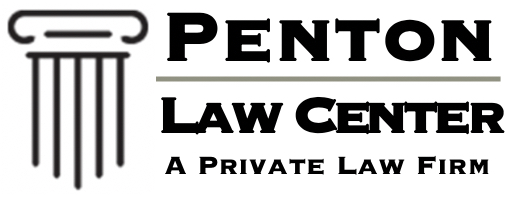The end of the year is approaching, and as a business owner, you’re likely reflecting on the past twelve months while looking ahead to the future. While many focus on revenue goals and growth targets, there’s one fundamental aspect that can make or break your success in the coming year: productivity. By implementing the right productivity practices now, you can set yourself and your business up for unprecedented efficiency and success in the new year.
Create Systems That Scale
One of the biggest productivity killers in any business is reinventing the wheel for recurring tasks. Think about how many times you or your team members perform the same activities. Each time you tackle a familiar task without a documented system, you’re essentially starting from scratch, wasting valuable time and mental energy.
Start by identifying your core business processes – everything from customer onboarding to invoice processing to social media management. Document each process step-by-step, noting who’s responsible for what and any tools or resources needed. Consider recording video tutorials for complex procedures or creating detailed checklists for routine tasks.
Remember that good systems do more than just document current practices. They should be designed to scale with your business. As you create each system, ask yourself: Will this work when we’re handling twice the current volume? Five times? Ten times? Build flexibility into your systems now to avoid major overhauls later.
Embrace Strategic Automation
While systems provide the foundation for productivity, automation takes it to the next level. However, the key is being strategic about what you automate. Not every process needs or benefits from automation, and poorly implemented automation can create more problems than it solves.
Start with repetitive, time-consuming tasks that don’t require human judgment. Email responses, appointment scheduling, invoice generation, and social media posting are prime candidates for automation. Look for areas where manual data entry creates bottlenecks or where human error could be costly.
Be sure to thoroughly test any automation before fully implementing it. Start small, perhaps with a single process or department, and gradually expand based on results. Remember that automation should serve your business goals, not dictate them. The best automation solutions are those that free up your team to focus on high-value activities that require human creativity, judgment, and relationship-building.
Implement Time-Blocking and Focus Management
Time is your most precious resource as a business owner, yet it’s often the most poorly managed. Random interruptions, constant email checking, and reactive decision-making can fragment your day and destroy productivity. The solution? Strategic time-blocking and focus management.
Start by auditing how you currently spend your time. Track your activities for at least a week (ideally two), noting what you’re doing and any patterns in your energy levels and focus. Use this information to create designated blocks of time for different types of work. For instance, you might schedule deep work during your peak energy hours, batch similar tasks together, and set specific times for email and communication.
Consider implementing “power hours” – focused work periods where you and your team minimize distractions and concentrate on high-priority tasks. This might mean turning off notifications, closing email, and even putting phones in airplane mode. The key is creating an environment that supports sustained focus and productivity.
Establish Clear Communication Protocols
Poor communication can derail even the best productivity systems. When information doesn’t flow efficiently, decisions get delayed, mistakes multiply, and productivity suffers. As you prepare for the new year, establish clear communication protocols that support rather than hinder productivity.
Define which communication channels should be used for what purposes. Maybe email is for external communication and documented decisions, while a chat platform is for quick internal questions. Set expectations for response times based on the urgency and importance of different types of communication.
Create guidelines for meetings to ensure they remain productive. This includes having clear agendas, time limits, and action items. Consider implementing “no-meeting” days or blocks to allow for uninterrupted focus time. Remember, every minute spent in an unnecessary meeting is a minute lost to productive work.
Your Next Step to Make 2025 the Best Year Ever for Your Business
As your trusted LIFTed Business Advisor™, I understand that implementing new systems requires careful planning and execution. That’s why I offer a comprehensive LIFT Business Breakthrough Session, where we’ll analyze your current systems and identify opportunities for improvements. Together, we’ll develop a customized plan to help your business operate at peak performance in the coming year.
Book a call here to learn more and get started today.
This article is a service of a Personal Family Lawyer® Firm. We offer a complete spectrum of legal services for businesses and can help you make the wisest choices with your business throughout life and in the event of your death. We also offer a LIFT Business Breakthrough Session™, which includes a review of all the legal, financial, and tax systems you need for your business. Call us today to schedule.
The content is sourced from Personal Family Lawyer® for use by Personal Family Lawyer® Firms, a source believed to be providing accurate information. This material was created for educational and informational purposes only and is not intended as ERISA, tax, legal, or investment advice. If you are seeking legal advice specific to your needs, such advice services must be obtained on your own separate from this educational material.
